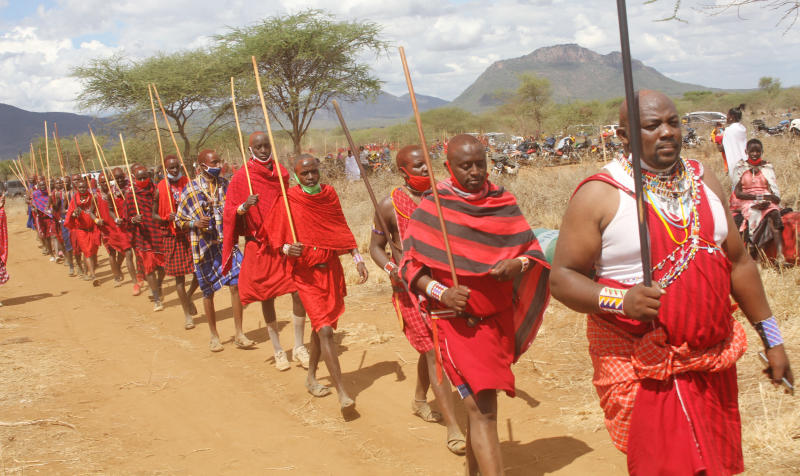×
The Standard e-Paper
Home To Bold Columnists

Maasai morans walk out of the bush during a cultural festival at Orkiramat in Mashuuru Sub-county, Kajiado County. [File, Standard]
After more than a century of experiments, one would expect the tapestry clothing Kenya to perfectly cover the seams and the scars, offering a uniform blanket to all and act as a form of a national identity.